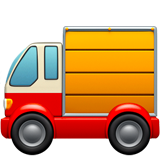One of the most common questions parents ask is: how long does potty training take?
Some parents swear by the "3-day potty training method," while others claim their child was potty trained in just 24 hours. But how realistic are these timelines? And how long does potty training really take?
The truth is, potty training is a unique process for every child. While some may show signs of progress quickly, for most children, potty training is a gradual learning experience that can take weeks or even months. In this blog, we’ll break down the average potty training timeline, bust some myths, and offer helpful tips to ensure success at your child's own pace.
The Potty Training Timeline: What to Expect
On average, potty training can take anywhere from three to six months, although some children may master it sooner, while others need more time. Every child is different, and factors like readiness, temperament, and consistency play a big role in how long it takes.
The 3-Day Potty Training Myth
You’ve probably heard of the 3-day potty training method, which promises that your child will be out of nappies in just a few days. While some parents claim success with this method, it’s important to approach it with caution. Most children don’t fully grasp the concept in just a weekend, and it’s completely normal if potty training takes longer.
The 3-day method involves intense focus and dedication for both parent and child, but it doesn't account for the inevitable accidents and setbacks that occur after those first three days. It’s a great way to get started, but remember that true potty training success often takes weeks or months to crack.
Potty Training in 24 Hours?
Similarly, stories of potty training in 24 hours or over a single day are enticing but extremely rare. These methods rely heavily on watching for signs of readiness and offering continuous potty breaks, but for most parents and children, it simply doesn’t reflect the full and realistic potty training journey. While it may work for a select few, most children need time to build confidence and consistency.
If you try one of these quick-fix methods and don’t see immediate results, don’t worry! It's normal for potty training to take longer, and you haven’t failed. These stories make for great headlines, but potty training is rarely that straightforward.
Signs Your Child is Ready for Potty Training
Potty training success is all about starting when your child is ready. Here are some key signs that your little one might be ready to start:
- Shows interest in the potty or watching others use the toilet.
- Stays dry for longer periods.
- Communicates when they need to go, even if it's just through gestures.
- Dislikes dirty nappies and asks to be changed.
- Wants to wear "big kid" pants.
If you start potty training before these readiness signs, the process can take longer and lead to more frustration for both of you.
How to Make Potty Training Easier and More Efficient
Consistency is the key to successful potty training. Here are a few ways to help your child progress:
1. Stick to a Routine
Establishing a regular potty routine can significantly help. Encourage your child to sit on the potty at specific times, such as after meals or before bed. Consistency will help them learn to recognise when they need to go.
2. Use a Portable Potty for Consistent Training
Having a consistent, familiar potty can make a world of difference. The My Carry Potty is a portable potty that your child can use both at home and on the go. It provides a sense of security and ownership, which can speed up the potty training process. P.S. we make them in a bunch of cute designs and colours, which your little one will love.
3. Gentle Encouragement and Rewards
Celebrate the small victories! Whether they successfully use the potty or just sit on it, acknowledging their efforts builds confidence. Stay positive even during accidents—these are part of learning. Tools like reward charts or verbal praise can make a big difference.
Why It Can Take Longer: Night-Time Potty Training
While many children are able to potty train during the day within a few months, night-time training often takes much longer. It’s completely normal for children to need nappies or pull-ups at night for months, or even years, after they’ve mastered daytime potty training. Patience is key, and there’s no need to rush night-time dryness.
Most children will start waking up dry consistently around the age of 4 or 5, but this varies widely. Make sure they’re ready before attempting night-time potty training to avoid unnecessary stress.
How Long is "Too Long" for Potty Training?
If you’ve been working on potty training for over six months and your child is still struggling, it might be time to reassess your approach. It could be that your child wasn’t quite ready when you started, or they may need more support and encouragement. Every child is different, and there's no set timeline for when potty training should be complete.
Final Thoughts
Potty training is a journey, and the time it takes will vary from child to child. While some parents have success with rapid methods like the 3-day potty training or stories of potty training in just 24 hours, these are exceptions rather than the norm. Most toddlers will need several months of practice, patience, and encouragement.
Using a supportive and portable potty like the My Carry Potty, sticking to routines, and being consistent with encouragement can all help make the process smoother. Don’t rush—focus on progress rather than perfection, and soon your child will be confidently using the potty in their own time.
For more helpful tips and expert advice, be sure to check out Amanda Jenner’s Potty Training Magic for strategies that work with your child’s pace.





